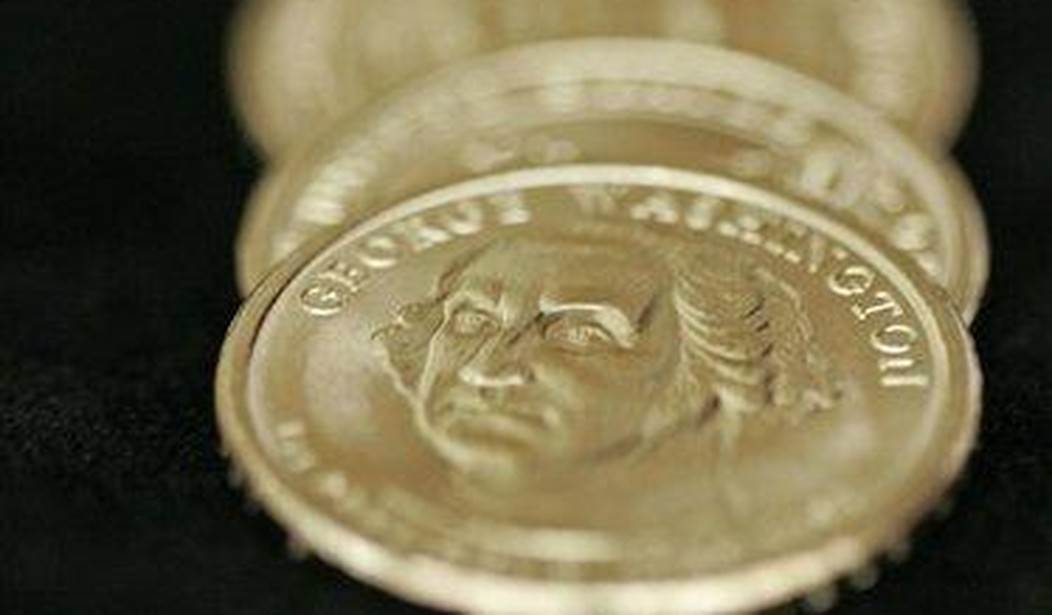Before there was a coin shortage, cash was under attack in the media and ridiculously hailed as a Covid-19 hazard. Now news outlets are making sure everyone knows only to think of a looming cashless society as a “conspiracy theory.”
At the height of anxiety over the coronavirus, CNN berated the American people for using cash. “Do NOT take a bunch of cash out of the bank” rang one headline, and “Dirty money: The case against using cash during the coronavirus outbreak” read another.
CBS News similarly ran an anti-cash story at the time, as did other mainstream networks, but more recent stories feign concern about the growing suspicion of an impending digital coup against paper and coin money.
It’s always funny how the media manipulates emotions, giving us something to be outraged about one day and trying to calm us down the next day if we’re outraged about the wrong thing.
Americans should be concerned about moves away from cash, and there is nothing wrong about questioning who would benefit and who would lose in a cashless society. If that makes you a conspiracy theorist in the eyes of the average journalist, who cares.
It was just last year that Bank of America CEO Brian Moynihan said, “We want a cashless society.”
Big banks and financial institutions would reap obvious benefits, beyond saving on the costs of transacting in coins and paper as well as transporting them. They would have that much more data to collect in bulk on their customers.
In the era of Cancel Culture, other more nightmarish consequences are stunningly easy to fathom. The difference between being banned from social platforms and financial platforms is a matter of degree, and the latter is already happening.
Recommended
There is no downside to a cashless society for its fiercest proponents. They aren’t worried about finding a side hustle or working for tips. They aren’t kids trying to mow a lawn or who are otherwise priced out or regulated out of the market by minimum wage and child labor laws.
The big players thrive in heavily top-down regulatory regimes. The smaller ones who might improve their standing need the freedom that cash provides.
Unfortunately, some leftist progressives are spearheading efforts to “help” people in lower economic strata be swathed up in the post-cash digital system. That would entail subsidizing free checking accounts or other special access to the financial system.
At last, inclusiveness and equality will be guaranteed once that fascist cash is out of the way. The campaign slogan will go something like that.
Many anti-cash advocates also tend to favor negative interest rates and much freer reign for central banks. Such policies are easier to enact without physical forms of legal tender. Federal Reserve Chairman Jerome Powell expressed his aversion to negative interest rates “for now” back in May, but President Donald Trump and other monetary theorists support the idea.
Negative interest rates mean an end to savings so that consumerism becomes all-encompassing for economic activity. The permanent stimulus would become a compulsory force, rather than a relief amid a downturn.
So, the threat of a cashless society is real. How urgent the threat is in today’s fast-paced and unpredictable environment, people will have to decide for themselves.
The ongoing coin shortage is seen by some as evidence of a quickening, which may or may not be the case. Because that wasn’t a media-generated narrative, it has been widely denounced as a conspiracy theory.
The coin shortage does have a reasonable explanation though, given the lockdown and social distancing orders. Smaller businesses are losing out to the likes of Amazon and other online services, so coins are being used much less.
“I think most merchants, especially small merchants and small-transaction merchants, would still prefer to take cash,” said K. Craig Wildfang in an interview with Axios. He is with the law firm Robins Kaplan, which is suing on behalf of retailers against card swipe fees.
Considering that over 90 percent of companies fail within two years of a disaster, according to the US Small Business Administration, it is all but guaranteed that there will be fewer businesses around to fight for cash as an option, as long as Covid-19 lockdowns and related emergency orders carry on.
Even larger chains like CVS, Kroger, Walmart, and others are refusing to give change, instead choosing to donate the extra cents to charity or otherwise digitize the value for the customer for their next shopping trip.
As Clifford Thies at the American Institute for Economic Research explains, there is a good reason behind the coin shortage. It’s fairly well known that pennies cost more than their worth to produce, but he also adds to their total cost the time lost in counting them in transactions as well as transporting them.
This estimates the use of pennies to cost up to $500 million per year, which may be more costly than simply rounding off prices to the nearest nickel or dollar. Thanks to monetary inflation, those same dynamics have an effect on nickels, dimes, and quarters, which are all produced with much cheaper metals than their original form required.
Therein lies the answer. Witness the record high prices of gold and silver. The US dollar is being (digitally) printed into oblivion, along with trillions upon trillions of dollars being summoned by the Congress to fund multiple Covid-19 relief bills.
Cash may be the last bastion of value, as it retains some scarcity in relation to digitized dollars. It’s important for people’s livelihood and freedom that it be defended vigilantly.
Don’t let the media shame you into complacence regarding a cashless society. It’s only crazy not to question such a system that clearly some have no qualms about forcing on us all.

























Join the conversation as a VIP Member